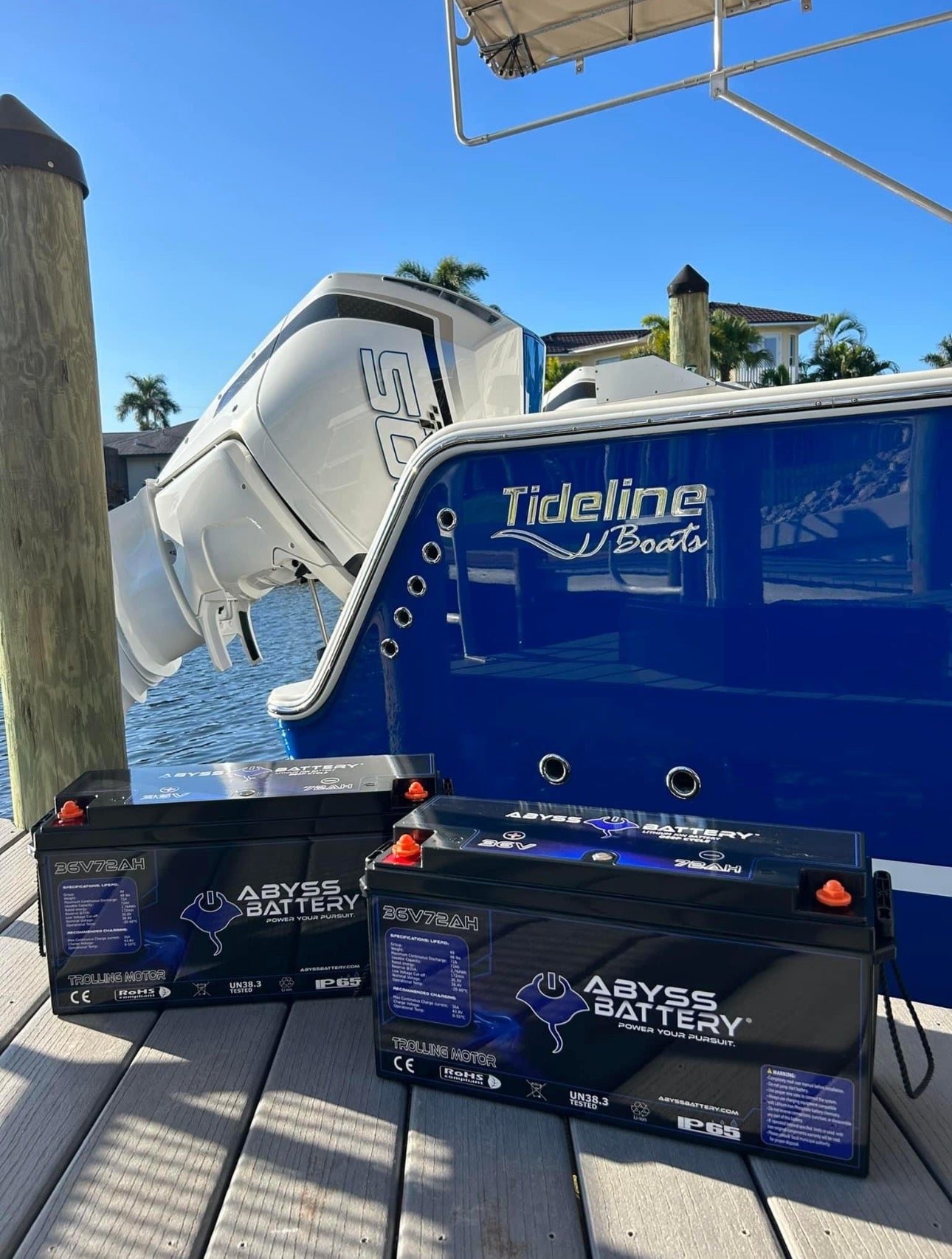Lithium vs. AGM Trolling Motor Batteries: Which To Choose?

Anglers and boat owners recognize the role of trolling motor batteries in powering excursions on the water. Lithium and AGM (absorbent glass mat) are two heavyweights in marine battery technology. Both offer distinct advantages that cater to different needs. We’ll compare lithium to AGM trolling motor batteries so that you can choose one that supports your boating adventures.
Understanding the Basics
Lithium batteries have a high energy density, allowing them to store more energy in a lighter package than lead-acid batteries. Their long lifespan and high charge and discharge rates make them ideal for applications where weight and performance impact boat performance.
AGM batteries belong to the lead-acid family, a staple in the fishing and boating community for decades. They are non-spillable and maintenance-free, thanks to the absorbent glass mat separators that serve as reservoirs for the electrolytes.
Comparing Performance
Various scenarios call for different performance characteristics, which is where the two battery types differ significantly. Lithium batteries have impressive power-to-weight ratios and quick recharging capabilities. They can endure hundreds more charge cycles than AGM batteries and maintain a more consistent voltage under load, making them perfect for trolling motor batteries. While AGM batteries might not match lithium’s lifespan, they excel in their ability to hold a charge over time. If you take infrequent boating trips, AGM batteries may be the better choice because they discharge more slowly when not in use.
Environmental Considerations
Another area of comparison is eco-friendliness and energy efficiency. Overall, the production and disposal of Lithium batteries are concerning since they require more energy to produce and often have a larger carbon footprint than AGM batteries.
While AGM technology is far more efficient and less polluting than traditional flooded lead-acid batteries, it’s important to handle and dispose of them properly to minimize environmental impact.
Cost Analysis
Cost is a significant factor to consider when investing in boat equipment. Understanding the long-term expenses can help with budgeting. Lithium batteries have a higher upfront cost due to their advanced technology and manufacturing processes, but their longer lifespan and lower maintenance requirements can lead to cost savings over time. AGM battery prices are generally lower than lithium, making them more accessible to boaters.
Meeting Your Boating Needs
The choice between lithium and AGM trolling motor batteries comes down to performance, cost, environmental impact, and personal preference. Evaluate the demands of your boating needs, and understand the long-term implications of your decision. Whether you’re an angler chasing the next big catch or a casual boater seeking tranquility on the water, your choice of battery can enhance the quality of your experiences.


Leave a comment